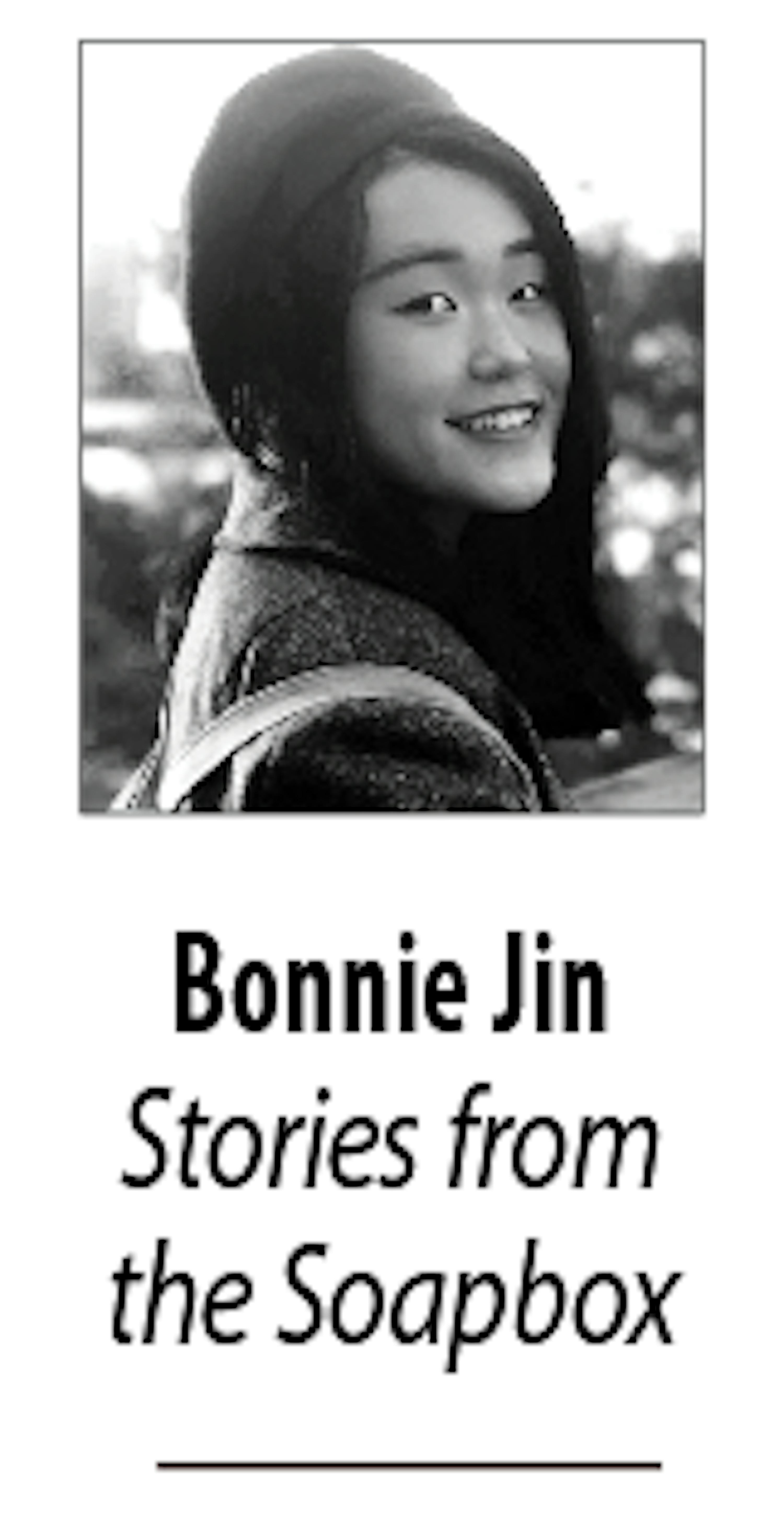
I. I sat as the youngest between seven cousins and countless relatives, eating our own version of a belated Thanksgiving. Between mouthfuls of dumplings and rice cakes, I saw my aunt’s eyes crinkling into a smile.
“So Bonnie — what colleges were you applying to again?” Before I could answer she responded,
“As long as it’s somewhere we know, we’ll be proud of you.” (So: Harvard, Yale, Princeton, NYU and any school in Boston.)
Like many upsetting family stories, it’s funny because it’s partially true.
As refugee children during the Chinese Civil War, my grandparents never received any form of formal education. They knew little about the academic system and even less about the application process. The only schools they knew about were through the news or because some relative’s child got in. But based on the repute a neighbor gained because their son went to an esteemed university in Taiwan, and the general gossip which circulated between mothers in their military-dependent village, they understood that academia was the way towards a better job and a better life.
In Taiwan and many other Asian countries, college rankings are everything. Due to longstanding institutional inequalities, entrance to a top high school leads to a top college, which then leads to high-paying, elite career opportunities otherwise closed off to students of “lesser” universities. Although the system is far less clear-cut in the U.S, the image of a clear connection between academia and social standing is a mentality which many Asian families carry with them to the U.S.
My parents were far less concerned with so-called social prestige and more concerned with what I actually wanted to do. But even though I understood that prestige isn’t everything, when only the top universities were what people talked about at school, on the news and at family dinners, I couldn’t help but feel inclined to acknowledge academic hierarchy.
II. “Isn’t UChicago where fun goes to die?” We laughed in agreement, despite the fact that only one of us went to UChicago and actually knew what it was like.
Dinner at Panera’s. The five of us — girls of UCLA, UChicago, Hopkins, Tufts and UToronto — had met at a three-day collegiate Model United Nations Conference.
“You know, I was waitlisted at UChicago,” I mentioned between spoonfuls of clam chowder. “I really liked your core curriculum.” I saw UChicago’s face light up.
“Thanks! I love it too,” she replied. “Which is why I couldn’t imagine myself going to John Hopkins. Isn’t Baltimore so dangerous? How do you survive at such a STEM-heavy school?”
We continued our conversation as if we wore our schools on our sleeves and were wholly detached from the attacks on our institutions.
Any conference involving other students from other universities seems to begin with the introduction of our institutions. There’s always a conversation which superficially runs through the stereotypes of each school, before we start small talk about ourselves.
When I mention Hopkins to friends outside of academia, half of them don’t recognize it or recognize it from House.
When I mention Hopkins to friends from universities back home, conversations about our institutions cast an awkward shadow over the group, as if the insults we throw at our universities represent our perceptions of each other. Negative stereotypes represent the students themselves, while the lack of stereotypes represents the exclusion of “lesser” schools from conversation.
I always treated it as another form of small talk between students, but I’ve realized that it projects insecurity and perpetuates academic elitism.
III. Waseda University is the highest-ranked private university in Japan. During my exchange year, if prompted, I always mentioned that I went to Waseda because people recognized it more so than Hopkins. Much like how people associate Hopkins with white lab coats, people assumed that I was wealthy and elite.
This treatment began in the airport and continued to the countryside. The astonished looks on people’s faces when I pulled out my student ID. The admiration from high-school students when they heard a Waseda student was teaching them English.
The elitism associated with Waseda is true. Students can only receive jobs by applying to career forums, and the highest-paying jobs are reserved for career forums open only to three universities (Waseda, Keio and Tokyo). Waseda boasts a vast alumni network at all levels of Japanese society. For the most part, it’s fair to say that the students are financially well-off.
If I was at a group outing and mentioned to guys that I was from Waseda, unless they were from Waseda, Keio or Tokyo University, they felt uncomfortable around me and would avoid being friends with me or other Waseda girls. In a society of clear expectations and gender roles, if you’re a man, a female friend attending a university ranked higher than yours is awkward and uncomfortable.
IV. During April Fools’ last year, The News-Letter ran a joke article titled “Hopkins not elite enough for admissions scandal.” Like many jokes, it’s funny because it’s partially true.
We are separate from our institution but also a part of it. Because of the time we spend at Homewood, the people we meet at the FFC and beyond and the excessive brain-power we use in Brody, Hopkins becomes a large part of our identity. Among other Hopkins students, it’s easy to criticize what’s wrong with our school — the private police force, lack of administrative feedback and subpar food. But when you’re placed in a situation with students outside of Hopkins, any attack on Hopkins can feel like an attack on you.
So is the case with students across America. Ultimately there isn’t much difference with academic rigor across campuses, and we all got into where we are due to four parts merit and six parts luck. We shouldn’t praise the institutions we attach ourselves to but rather the effort we’ve put in to come so far. Even if we’re just trying to use every means possible to give ourselves confidence in our futures, our words can tear down someone else just as they boosts ourselves.
My family members didn’t say what they did because they support academic elitism but because those were the only schools they knew. As students who have gone through the academic process, we must hold ourselves accountable to academic inclusivity.





